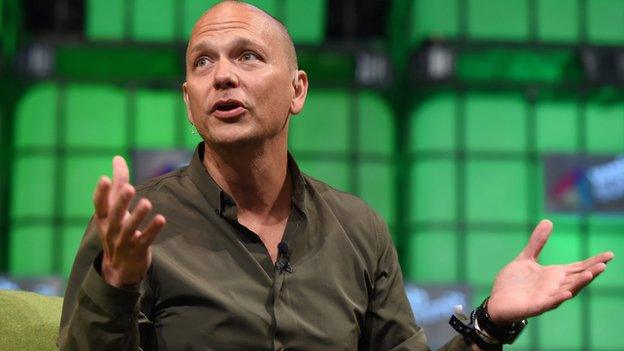Tony Fadell flies from faltering Nest
- Published
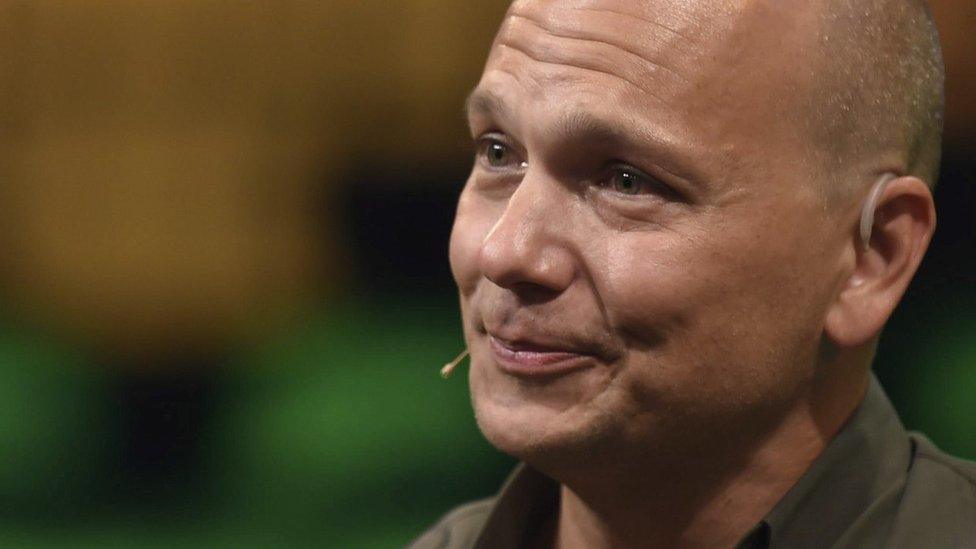
Tony Fadell will remain an advisor to Alphabet
Tony Fadell has stepped down as chief executive of Nest, the smart device firm owned by Google's parent company Alphabet.
His departure concludes a turbulent two year period that started when Google bought Nest for $3.2bn (£2bn).
There had been reports of complaints from staff about the management of the business, and criticism of its slow roll-out of new products.
But in a lengthy blog post published on Friday, external, Mr Fadell said the move had planned for some time.
"This transition has been in progress since late last year and while I won't be present day to day at Nest, I'll remain involved in my new capacity as an advisor to Alphabet and [its chief executive] Larry Page.
"This will give me the time and flexibility to pursue new opportunities to create and disrupt other industries."
Mr Fadell is being replaced by Marwan Fawaz. He used to run Motorola's Home division, and is expected to bring his expertise in connected devices to Nest as it attempts to build on the early success of the Nest thermostat.
'Catapulted'
Mr Fadell was praised on Friday by Mr Page.
"Under Tony's leadership, Nest has catapulted the connected home into the mainstream, secured leadership positions for each of its products, and grown its revenue in excess of 50% year over year since they began shipping products," he wrote.
"He's a true visionary and I look forward to continuing to work with him in his new role as advisor to Alphabet."
The kind words between Mr Fadell and his superiors and successor will not distract from the dramatic, often public events over the past year.
From the product side, sales of Nest's smoke and carbon monoxide alarm Protect were halted when the company discovered the alarm could be accidentally disabled if someone waved their arms underneath it. Customers were offered a full refund.
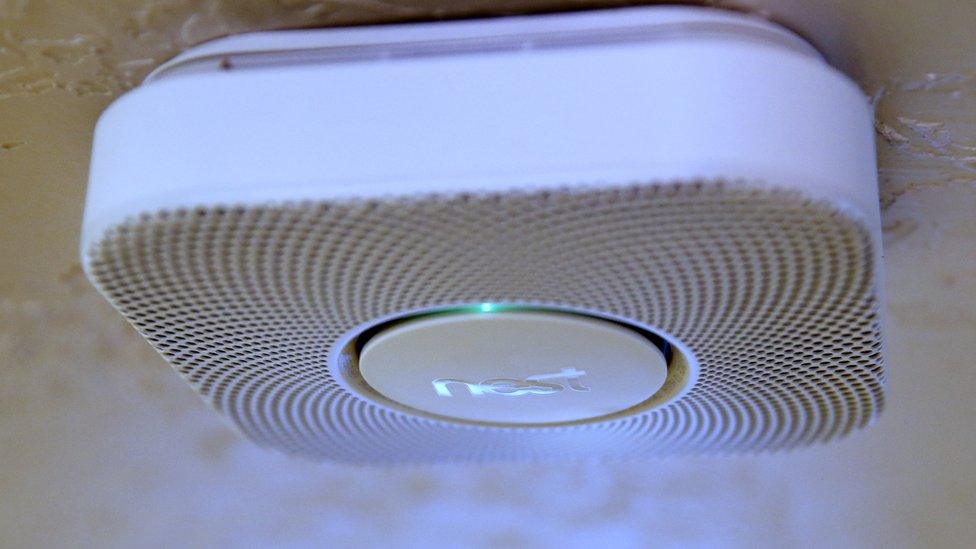
Nest's smoke and carbon monoxide alarm was pulled from sale when a serious bug was found
A bug in Nest's smart thermostat left some users with "cold house, cold feet" earlier this year, while its smart hub, Revolv, was intentionally bricked by the company.
Nest's acquisition of Dropcam - a security camera maker - exposed further fractures.
Dropcam's founder Greg Duffy, who left when Google bought the company, wrote an astonishingly blunt Medium pos, externalt attacking the management of Mr Fadell.
"The 50 Dropcam employees who resigned did so because they felt their ability to build great products being totally crushed," Mr Duffy wrote.
In an apparent reference to Apple's founder, the late Steve Jobs, Mr Duffy added: "The current leadership of Nest... seems to be fetishising only the most superfluous and negative traits of their mentors."
There was no official statement at the time from Nest nor Google/Alphabet.
But in an interview conducted before Mr Duffy's Medium post was published, Mr Fadell said: "A lot of [Dropcam's] employees were not as good as we hoped. It was a very small team and unfortunately it wasn't a very experienced team."
Connected home
If there's a bigger picture to take from all of this, it's perhaps this: despite a chorus of voices backing the concept, the vision of the connected home does not seem to be materialising.
If you could travel back in time to the Consumer Electronic Show (CES) in, say, 2014, and tell attendees that midway through 2016 there still wouldn't be a critical mass of people with app-enabled houses, you'd be a lonely voice indeed.
In an interview with Bloomberg, external, Mr Fadell defended his tenure of Nest with a fair assessment that when you're treading new ground, errors will be made along the way.
"I don't know of any regrets that I have," he told the financial news organisation.
"You can take something as a challenge or take it as a learning experience. And so for me, it's always growth. We all make mistakes. We have to make mistakes when we learn to speak or we learn to walk or crawl.
"So, to do what we do at the level we do it, no one's done it before. So you're bound to make mistakes."
Follow Dave Lee on Twitter @DaveLeeBBC, external and on Facebook, external
- Published30 March 2016
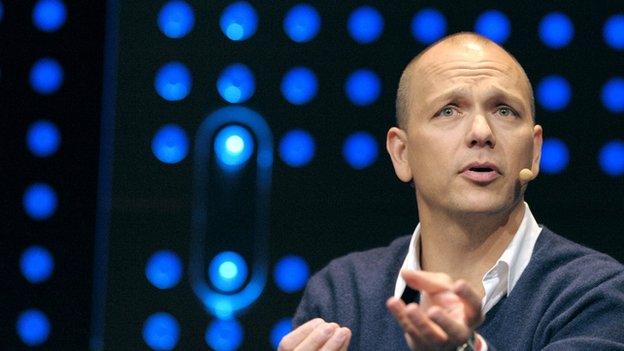
- Published24 July 2015
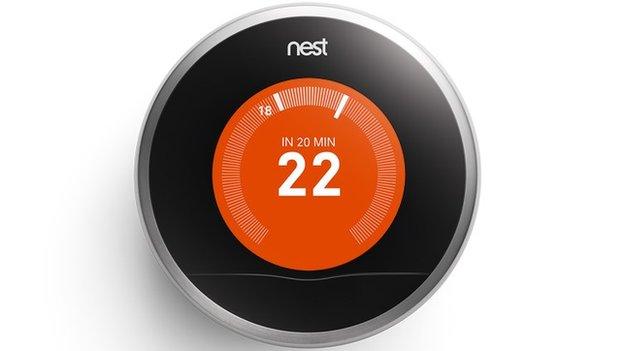
- Published24 July 2015
